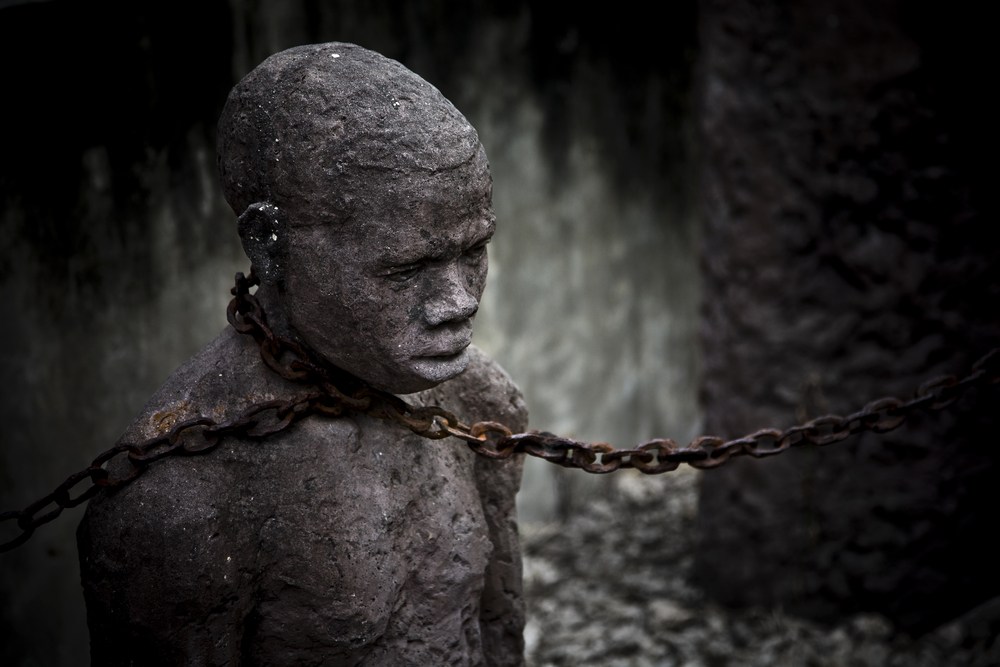There are always those who you will come across from time to time who seem to have been raised to believe that something called Benevolent Slavery existed. That sure, there were horrible Masters, but there most certainly were good masters too. To these people, the existence of these “good masters”, somehow cast doubt on the inhumanity of the institution itself. Seemingly suggesting that if you were lucky enough to happen upon a benevolent owner you would have experienced something called benevolent slavery.
Please consider my arguments, as I attempt to show you why the institution of chattel slavery was utterly incapable of being humane, in any circumstance, by any measure.
For the sake of argument, we will assume that Slave-owner James was a benevolent, God fearing man who never, under any circumstance, raised a whip or weapon of any kind to any of his slaves. Let’s also assume that in addition to never abusing his slaves with the whip, James also never verbally abused them either. Let’s also add that James clothed and fed them sufficiently. Let’s also say that he set aside a small, but adequate piece of land for his slaves and provided time on Saturdays after they completed their daily work for his slaves to work this piece of land to cultivate their own food. Let’s also say that James did his Christian duty and saved their wretched Souls from the eternity of fire and brimstone that awaited them as pagans and taught them each, to the person, to know Christ. How does that sound? Let’s even say that out of appreciation for them James even gave them, from time to time, a few coins so that they could buy their own things from the merchants when he would go into town for supplies.
Sound good?
Ok, despite all those things in the above paragraph slaves were still legally considered property, right? So what happens to property when someone dies? That’s right. If the owner of the property has any debt, his debtors have first dibs at his estate to clear up any monies owed. This means that, upon his death, you, your wife, anyone of your children could be taken from you like the property you were never to be seen again, and you couldn’t do anything about it. The last time I checked no man has ever lived forever.
Hell, even Jesus died.
So Slaves had an almost unhealthy obsession with the health and wellness of the Master because his death often meant inevitable, uncertain, often permanent, irreparable changes in the enslaved African’s basic family unit.
I offer you this account of one such auction to pay off the debts of a benevolent Slave-owner Mr. Young.
“On the day of the sale there were slave traders and speculators on the grounds to buy. The slaves were offered on the auction block, one after another until they were all sold before their old master’s face. The first man offered on the block was an old gray-headed slave by the name of Richard. His wife followed him up to the block. One of the bidders asked what Richard could do, since he was so old, and Mr. Young told them that Richard was a Christian in good standing with the church. Upon hearing that his value went up from $70 to nearly $200 dollars. Good Christians were believed to be more docile and less likely to be a problem.
“His poor old wife stood by weeping and pleading that they not be separated. But his sale dissolved their marriage, they were separated never to meet again. After all of the men were sold, they then sold the women and children. The first woman was asked to lay down her child and mount the auction block; she refused to give up her little one and clung to it as long as she could while the cruel lash was applied to her back for disobedience. She pleaded for mercy in the name of God but found none. The child was torn from the arms of its mother amid the most heart-rending shrieks from the mother and child on the one hand, and bitter oaths and cruel lashes on the other. In this way, the sale was carried on from beginning to end.”
Well, even if the James didn’t have any debt when he died he most assuredly had children. The more children James had, the greater the chances that your family was going to be split as James gave each of his children someone in YOUR family as part of their inheritance. Divvying out your family to his children with no more significance than you might give divvying out your baseball card collection to one child and your CD collection to another.
Did he have any daughters? If James did, he is probably going to give one of your family members to her to help start her own house and family. And remember, just because James was benevolent doesn’t guarantee that the kindness that you experienced under James would follow to your new master…her new husband.
Since slaves were assets they could be sold if you needed an immediate influx of cash, Planters almost never recognized slave marriages. In fact, most married slave couples were separated by their sixth anniversary by any number of the situations or circumstances I outlined above. But it wasn’t just young couples that were broken up. It was always about the money, so Planters didn’t hesitate when need met opportunity to break up any slave union. Hosea Bidel, a slave, was separated from her husband after 25 years; Valentine Miner from his wife after 30 years. Lucy Robinson, a slave in Louisiana was separated from her husband after 43 years. None of them ever saw their spouses again. This practice of breaking up the Black family either to pay off debts, or to be distributed among siblings as inheritance or even sold to make some money to fix the kitchen sink, made the enslaved African’s family one of the most unstable institutions imaginable.
And then, please consider the lasting impact this had on the human beings that had to go through this.
Thomas Rutling was born into slavery in Tennessee in the 1850s. His earliest memory was of his mother being sold and sent away from him while he was a small child. “She kissed me and bade me goodbye, and how she cried when they led her away.” The last word that Thomas received of his mother was that her new owner, due to his frustrations with her not getting over being separated from her child, had whipped her “til she was almost dead.”
How about having that for your earliest memory.
One Georgia slave had her infant child sold from her in order to pay off a gambling debt. Understandably the distraught mother could not sleep at night. “Every time I shut my eyes, I hear my baby cry, “Take me wid you mamma; take me wid you!’ I put my fingers in my ears, but all the time I hear him just the same, crying, ‘Take me wid you, mammy; take me wid you!”
Yeah, you would think that would pretty much drive you crazy. And you know what? Slave-owners agreed. And that is why Slave-owners believed, nearly down to the person, “neither black men nor black women had strong parental feelings towards their offspring”. They would also say things like, “fortunately for them the Negro is a cheerful being.” That was the only plausible explanation that they could come up with as to why the enslaved African wasn’t so grief stricken from all of this that he didn’t walk around like a blubbering idiot.
Obviously it was to their advantage to think this was true because if it were true it would help ease their own guilt with what they were routinely doing to slaves by this practice.
This process of breaking up the black family even had effects on how slaves were named. Slaves got different names the way professional ballplayers change jersey numbers when they get traded or drafted to a different ball club.
David Holmes testified to this in 1853, “Slaves never have any name. I’m called David, now; I used to be called Tom, sometimes; but I’m not, I’m Jack. It didn’t much matter what name I was called by. If my master was looking at one of us, and call us, Tom, or Jack, or anything else, whoever he looked at was forced to answer.”
So hopefully I’ve made my case against the idea of benevolent slavery. The worst part of slavery was NOT the workload or the beatings. It was, as I assume any of you would agree, being forcibly separated from your loved ones and being powerless to do anything about it, because, after all, all you are is property.
There is no benevolence in that.

